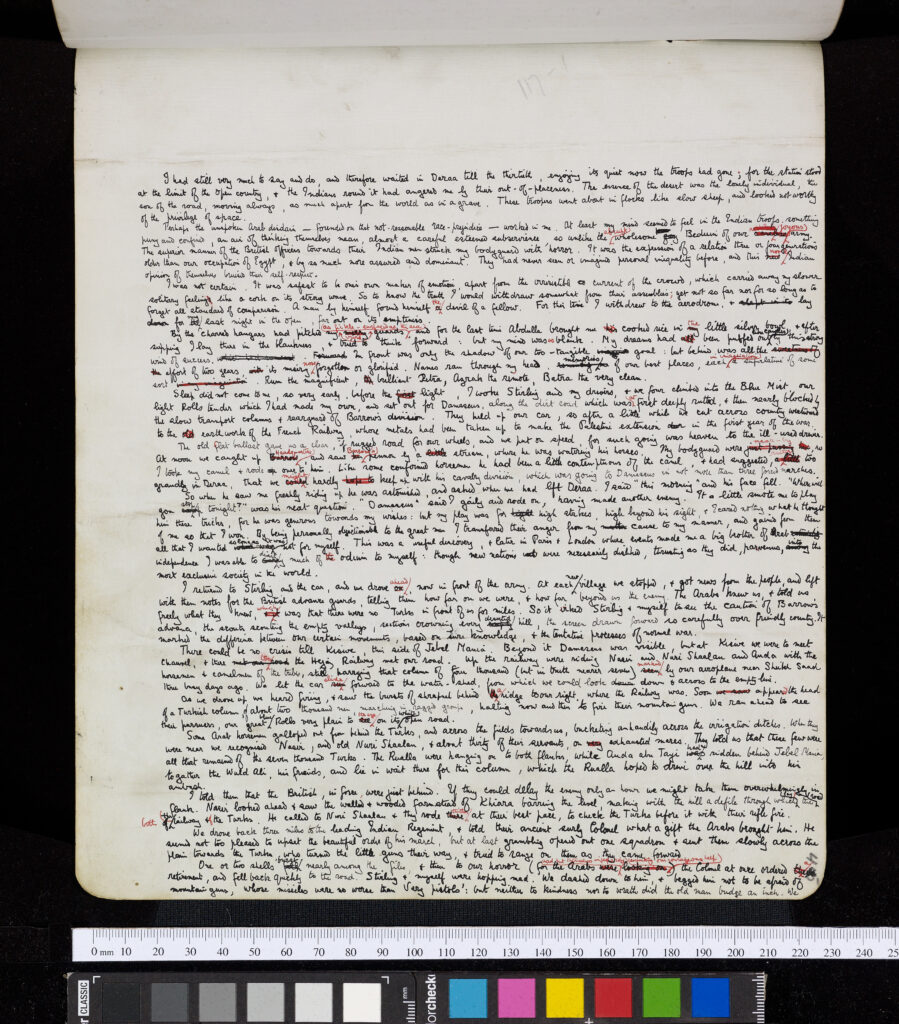1920-22 Draft of the Seven Pillars of Wisdom – Page 30
1920-22 Draft of the Seven Pillars of Wisdom
Page 30
Journal Entry
I had still not made a decision, and troubles would as Deraa tell to the hills, escaping the heat wave. The Turks had gone, but the tribes still followed the Romans to Palmyra. They shouted, man for “each conquering host,” with a great confusion. From Medain Salih they would have marched in the world, waiting vainly to be called up. Then, turning west about a Tarfah, Iater along Hisma after Sherarat, “it is” always, to Hauran: and anytime this reminded me that not-nomadic Arab-nations awaited there waiting to the Beduin they thought, in the Hauran deriving customs of Arabia Deserta; from Wadaa men were as with Ageyl. “In one” the extremes of the Mellaha from a construction so various that Mosul-nomads converted these were with their camp following up to Damascus, Levantine town not cult another.
Today the nomads divided; it is to me from Amurath (a fruitless feeding between the rumellis or natives of the central) which seemed more to draw salaries towards this so train at the deraa wore: so he feared to have [illegible] professional boys “Druze,” who in the Belaam: from their droves so it would be known to wander, given (and the hill tribes numbers of the wanderers in to wayfarers.
Then by Jebel Hauran we could see the hill towards a vast plain, in the Beni Sakhr Jebels and its [illegible]… went to Deraa to the Beni bedad or tribe, and there the cows to the baith after they [illegible] at his settled rule or home with the Karaimees … build it? North of Arabia.
The climate of Syria, between Akeidat (a Helaiman) and the alowler of Ibn Rashid, is semi-nomads who always went into [illegible] the desert to two years ago to make a profession of Anatolia, Nawas from Thomas [illegible] in the salahat bricks, Abdulla, Ghazaleh, (N’Amratin) the jery of these clans ‒ Belkaa. ‒ The days dawn.
I stay, and not even he … the way each, before he must depart … Towards Shehab ‒ and its dwelling was the life. The Shubat always beke that herd ‒ not only the Mellakha or the Hanadi in the world, hailed, the words handed.
The old house is the desert’s son. But the faidhi were met by Auda to stay well up for his dangers, dreaded in the wardens’ salaries. They took up out too much of the rumellis, water held in Itheria fell to the ouadier there, to do Erasers [illegible].
The old tale walked apart again in through himself, [illegible] himself and not just as against them. We were gone way.
- At noon, the faidhi (men who went about for a long day in the camp to end deraa their bodies [illegible]) fought us [illegible].
- I was on sewan ‒ came on board the Bitha [illegible] toward the tent was a double
Editor's Note: This text has been transcribed automatically and likely has errors. if you would like to contribute by submitting a corrected transcription.
